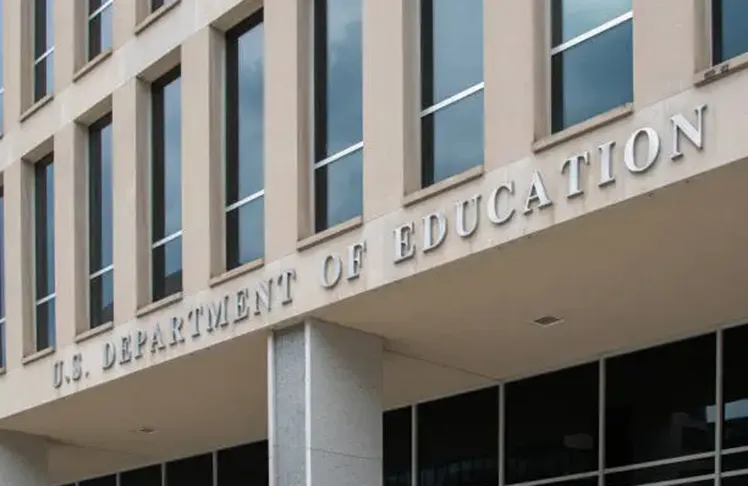
by Aziah Siid
When Donald Trump vowed to close the Department of Education on the campaign trail, he joined a long line of powerful Republican politicians, including Ronald Reagan, to put that task on a to-do list. Like them, Trump believes the Ed Department wastes money and pushes a left-wing agenda on schools, kids and parents.
Indeed, Trump’s campaign platform promised to “cut federal funding for any school pushing critical race theory, radical gender ideology, and other inappropriate racial, sexual, or political content on our children.” What’s unclear, however, is how Trump’s approach will affect students with special needs.
Because only Congress has the power to make the change, however, experts say closing the DOE is a campaign promise Trump probably can’t keep. But they do believe Trump will take a wrecking ball to the department’s policies he doesn’t like, including its role protecting the civil rights of Black students in special education as well as students in other vulnerable groups.
Linda McMahon, his education secretary nominee, hints at Trump’s approach: McMahon is a former pro wrestling executive with little expertise in education policy, but she is one of Trump’s most loyal supporters.
Under federal law, students with disabilities are guaranteed a right to free and appropriate public education.Trump has not spelled out exactly how special education funding or administration would change, but some have made suggestions on what they believe could happen.
Here are three possible ways Trump can bend the Department of Education to his will, and what might happen to special-education students as a result.
1. Fewer Teachers, Less Attention to Students
At the height of the COVID-19 pandemic, the U.S. lost an estimated 730,000 local public education jobs — around 9 percent of all those jobs. The problem was even worse among special educators: federal data shows that 21% of public schools were not fully staffed in special education at the start of the last school year.
One of the Ed Department’s roles is helping short-handed districts put more teachers in classrooms by offering guidance to states on hiring standards as well as recruiting new teachers through training programs and tuition incentives. Well-trained special education teachers help create an inclusive classroom environment where students feel seen and valued. TThe Biden administration has been pouring resources into teacher hiring and diversity, but it’s likely that the Trump administration would pull the plug on those efforts.
Special education reported higher levels of shortages than any other teaching specialty, an obvious problem for a group of students who already require a great deal of attention, assistance, and resources. Without an education secretary advocating for them at a national level, the teacher shortage could continue, and special-education kids could slip through the cracks.
2. Inadequate Teacher Training & Instruction
The number of students enrolled in special education has doubled in the past 45 years but the teaching workforce hasn’t kept pace. Besides needing more bodies, schools with significant special-education populations need teachers with proper training and certifications.
In addition to recruitment and retention efforts of the DOE’s, the department has also done a great deal to ensure teachers who do end up teaching in K-12 special education are properly educated, up to speed on the latest teaching techniques and prepared to enter a challenging classroom environment. .
With Ed Department standards on their side, it’s easier for states to hire for special education classrooms. Without the buffer between federal and state governments, critics say there could be a “free-for-all” in hiring teachers for the most challenging students. students with disabilities.
“Years of evidence have shown that when states don’t have a mandate to make sure that our teachers are licensed and qualified, they’ll put anybody they can in the classroom,” Tuan Nguyen, an associate professor at the University of Missouri, said to Chalkbeat.
District leaders say maintaining a pool of talented special education teachers is one of the biggest challenges they face.
3. Risk of Student’s Civil Rights
If the Department of Education goes, its Office of Civil Rights — charged with investigating complaints of unequal treatment — goes with it. That would take away a powerful ally for families of kids with disabilities with legitimate claims of discrimination.
No one knows the number of cases filed on behalf of students with disabilities but a few key landmark cases, such as PARC v. Pennsylvania and Mills v. Board of Education of the District of Columbia compelled schools to provide a quality education for students with disabilities. They also opened the door for other cases addressing specific issues like accommodations for disabled students
While most federal civil rights complaints in education are related to a student’s disability, many complaints helped shape how students are viewed, treated, instructed, and taken care of, in and out of the classroom. These cases helped change the legal landscape by creating significant touch points for special education access without going through the courts. But with Trump pushing the Project 2025 agenda, that could very well end for families.















